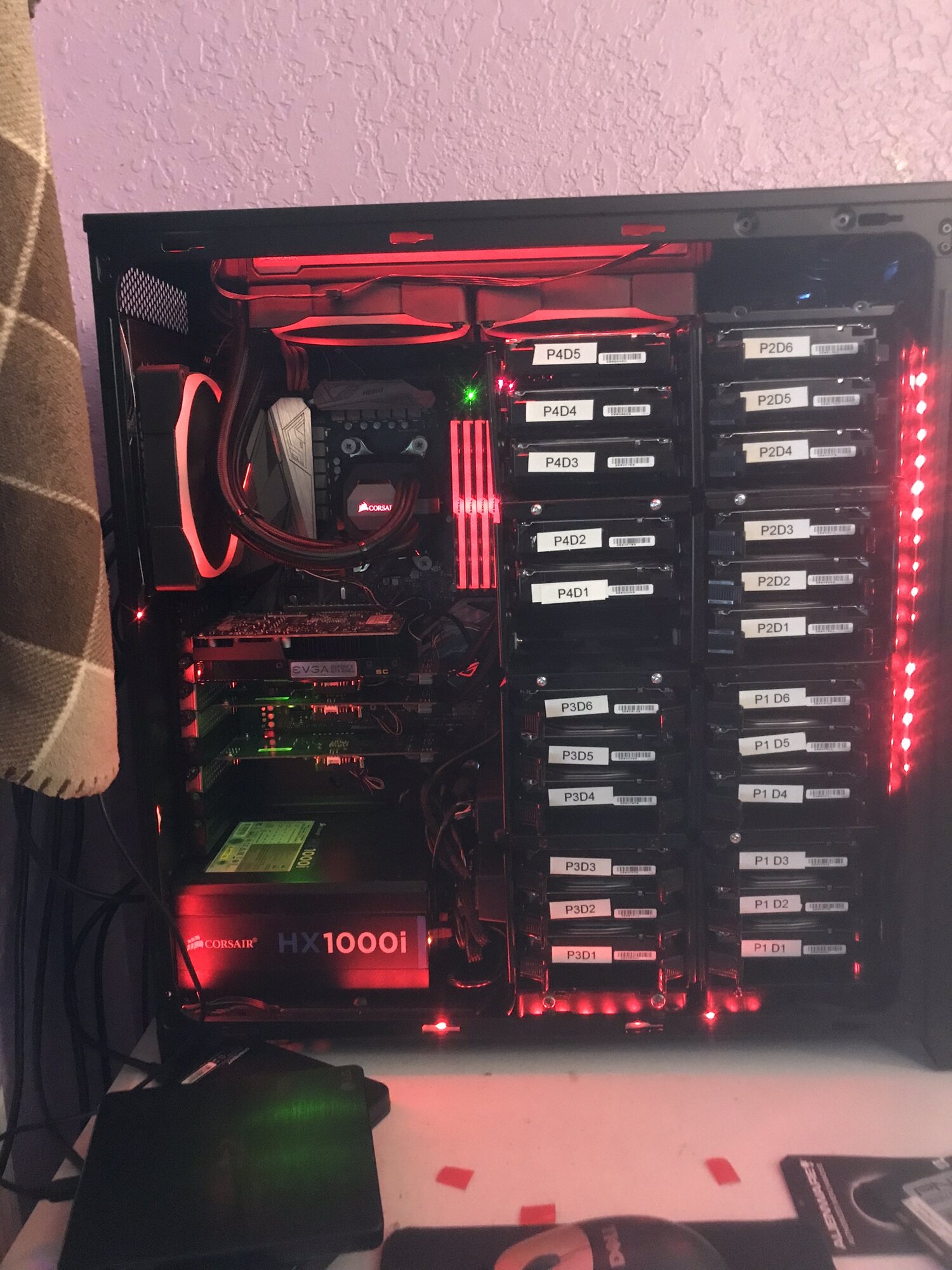OliverQueen
Limp Gawd
- Joined
- Apr 17, 2019
- Messages
- 170
About a year ago my NAS box decided to throw a fit amnd not want to work any more. The 2 x Seagate Barracuda 1TB SATA6Gbps 7200rpm 64MB cache drives are fine still as it was the actual NAS box itself that threw a fit. It was working one minute, then all of a sudden, it just kept losing one or both of the drives at random which in a RAID0 array isn't good! The information on the array was only digital copies of films I own for use across DLNA around the house.
At the moment I am running a PLEX server from the "new" build rig in my signature, but I am rapidly running out of space on the 2 x 3TB array in RAID0 with all the rerips of the BluRay's & UHD discs (movies & TV). The only reason I am putting them on the network is so I don't have to go downstairs & physically grab the disc because they are mainly watched when I am laid up in bed after a MS flare up.
The problem I have is that there are only 2 x 3.5" drive bays in the Corsair Crystal X570 case so I either have to remove the existing ones & replace with a pair of higher capacity drives again, or to get another NAS enclosure with 4 or more bays which would then take the transcoding on the fly away from the PC (not that it makes a massive difference to performance anyway even when streaming 2 x 4K films simultaneously using the Intel iGPU to do the majority of the work beings it is not being used for anything (no cables connected)).
The previous enclosure was a Zyxel NSA320 which for the price done a bloody good job of things especially when compared to the Buffalo drive that I originally bought that was slower than frozen shit down a greasy slide!
I was thinking of a Synology box but all I seem to hear is that it will last a long time or it will just give up without warning. Obviously if I haven't got a full back-up of the Array, everything is going to be lost & require redownloading & optimising again. Reliability is my main concern as I can handle a few seconds extra when starting to playback if it means that it is not going to drop out after the first 10 minutes.
Any suggestions that offer enterprise style reliability, have built in DLNA or can have Plex installed on to it & don't cost the same as a medium sized hatchback car! Same goes for the drives as well; need lots of capacity but also reliability & low operational volume.
Thanks in advance.
Save me Obi [H], you are my only hope.....
At the moment I am running a PLEX server from the "new" build rig in my signature, but I am rapidly running out of space on the 2 x 3TB array in RAID0 with all the rerips of the BluRay's & UHD discs (movies & TV). The only reason I am putting them on the network is so I don't have to go downstairs & physically grab the disc because they are mainly watched when I am laid up in bed after a MS flare up.
The problem I have is that there are only 2 x 3.5" drive bays in the Corsair Crystal X570 case so I either have to remove the existing ones & replace with a pair of higher capacity drives again, or to get another NAS enclosure with 4 or more bays which would then take the transcoding on the fly away from the PC (not that it makes a massive difference to performance anyway even when streaming 2 x 4K films simultaneously using the Intel iGPU to do the majority of the work beings it is not being used for anything (no cables connected)).
The previous enclosure was a Zyxel NSA320 which for the price done a bloody good job of things especially when compared to the Buffalo drive that I originally bought that was slower than frozen shit down a greasy slide!
I was thinking of a Synology box but all I seem to hear is that it will last a long time or it will just give up without warning. Obviously if I haven't got a full back-up of the Array, everything is going to be lost & require redownloading & optimising again. Reliability is my main concern as I can handle a few seconds extra when starting to playback if it means that it is not going to drop out after the first 10 minutes.
Any suggestions that offer enterprise style reliability, have built in DLNA or can have Plex installed on to it & don't cost the same as a medium sized hatchback car! Same goes for the drives as well; need lots of capacity but also reliability & low operational volume.
Thanks in advance.
Save me Obi [H], you are my only hope.....
![[H]ard|Forum](/styles/hardforum/xenforo/logo_dark.png)
